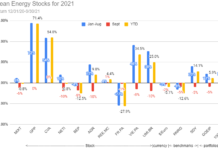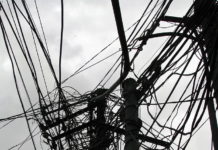Doug Young
![320px-A123_Systems_cell_family_high_rez[1].jpg](http://www.altenergystocks.com/wp-content/uploads/2017/08/320px_A123_Systems_cell_family_high_rez_1_.jpg) |
| A123 Systems battery cell products (Source: A123) |
In writing this blog, I generally try to keep my own views muted and focus instead on the latest news and what it means for the companies involved. But I’m making one of my occasional exceptions to that rule today to say that the US really should go ahead and approve the sale of bankrupt battery maker A123 Systems (OTC:AONEQ) to a Chinese company, since this deal seems to have few if any national security implications and blocking it would send a bad signal about Washington’s commitment to fair trade.
Rather than bow to opponents of the deal, who appear to have their own agenda that’s unrelated to national security, the US should follow the lead of Canada, which last week approved another controversial sale of energy exploration company Nexen (Toronto: NXY) to Chinese oil major CNOOC (HKEx: 883; NYSE: CEO). (previous post) Approval of that sale took a lot of courage from the administration of Canadian Prime Minister Stephen Harper, and now the US Obama administration should show similar determination to let the A123 purchase go forward.
Let’s look at the latest reports on A123, which is making headlines that are far bigger than the deal would otherwise get due to the fact that the buyer of the company is Chinese auto parts seller Wanxiang Group. According to the reports, a US bankruptcy judge has formally approved Wanxiang’s bid for most of of the assets of A123, which makes batteries used in alternate energy vehicles. (English article)
The judge in the case was unusually frank in his comments after approving the deal, saying he was concerned that another potential bidder, Johnson Controls (NYSE:JCI), might be working behind the scenes to kill the sale by asking Washington to block it on national security and other grounds. The deal is sensitive for 2 reasons. One of those is actually related to national security, since A123 sells some of its batteries to the US Defense Department. The other reason is more political, since A123 previously received a $250 million US government grant to develop lithium ion batteries.
Wanxiang has addressed the defense-related concerns by only bidding for the portion of A123’s business that does not include the Defense Department contracts. As to the $250 million government grant, this point looks like a non-issue to me. Governments frequently subsidize companies that ultimately fail, and the reason for providing such subsidies is often because such companies can’t get similar funding from commercial sources.
The fact that a Chinese buyer is acquiring the failed company’s assets is irrelevant, and is simply the result of an auction driven by market forces. If Johnson Controls really wanted A123, it should have submitted a more competitive bid rather than trying to use this kind of tactic to get a bargain.
The US has already sent negative signals in its use of the national security excuse with its recent decision to block construction of a wind farm in the state of Oregon being built by a Chinese company, and its blocking of Chinese telecoms equipment makers from selling into the US. Both of those moves did seem to have real implications for national security, but this latest deal doesn’t seem to meet that standard. Accordingly, Washington should stand aside and let the deal proceed, showing it will let commercial forces run the market except for in a handful of cases that truly do pose a risk to national security.
Bottom line: The US should approve the sale of bankrupt battery maker A123 to a Chinese buyer, to demonstrate it is committed to fair trade when national security isn’t at risk.
Doug Young has lived and worked in China for 15 years, much of that as a journalist for Reuters, writing about publicly listed Chinese companies. He currently lives in Shanghai where he teaches financial journalism at a leading local university. He also writes daily on his blog, Young’s China Business Blog, commenting on the latest developments at Chinese companies listed in the US, China and Hong Kong. He is also the author of an upcoming book about the media in China, The Party Line: How The Media Dictates Public Opinion in Modern China .








